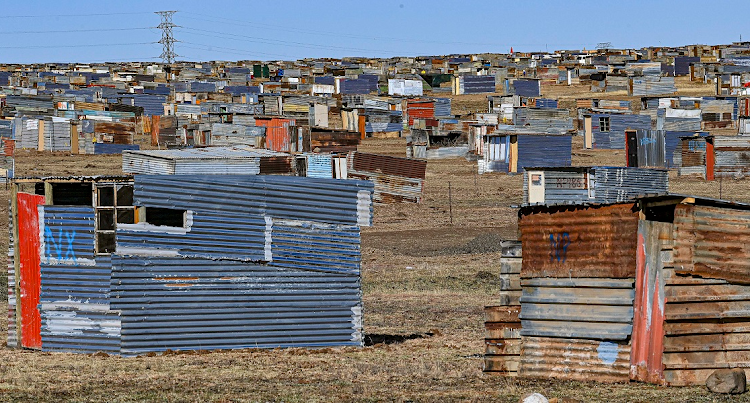Let’s talk about something really important that affects all of us: economic freedom. It’s not just a fancy term economists throw around; it’s the very foundation of our ability to make choices in our daily lives. Economic freedom is all about having the power to make our own decisions about work, spending, saving, and investing without too much government interference.
Think of it as the soil in which other freedoms can grow. When we have economic freedom, we’re more likely to enjoy political freedom, freedom of speech, and even personal freedom. It’s like a domino effect – one freedom leads to another!
Misconceptions About South Africa’s Economic System
Now, here’s something that might surprise you: South Africa hasn’t always been the capitalist country many people think it was. I know, shocking, right? But it’s true. During apartheid, the government had a tight grip on the economy, and even now, our current policies lean more towards socialism than you might realize.
It’s a bit like thinking you’re driving a sports car when you’re actually in a minivan. The apartheid government controlled who could work where, who could own businesses, and even where people could live. That’s not capitalism; that’s control.
Legacy of Apartheid: A Lesson in Economic Control
Let’s take a trip down memory lane, but fair warning – it’s not a pleasant journey. Apartheid wasn’t just a social and political system; it was an economic one too. The government thought they were protecting certain groups, but in reality, they were hurting everyone.
Imagine trying to run a race with your legs tied together. That’s what apartheid did to our economy. It restricted where people could work, limited education for most of the population, and created a system where only a select few could truly prosper. The result? A struggling economy that left everyone worse off.
Current Economic Policies: Parallels to Apartheid’s Impact
Now, you might be thinking, “But that was then, this is now.” And you’re right to an extent. But here’s the kicker: some of our current policies are eerily similar to those of the apartheid era in terms of their impact on economic freedom.
Today, we see the government getting involved in many aspects of the economy. From state-owned enterprises to strict labor regulations, these interventions, while often well-intentioned, can end up stifling growth and innovation. It’s like trying to help a plant grow by constantly messing with its roots – sometimes, you just need to let it be!
The Relationship Between Economic and Political Freedom
Here’s a thought that might make you sit up: when economic freedom gets squeezed, political freedom often follows suit. It’s like they’re dance partners – when one stumbles, the other tends to trip too.
During apartheid, we saw this in action. The government’s control over the economy went hand in hand with political oppression. Fast forward to today, and we can see similar patterns. When the government has too much say in economic matters, it often leads to reduced political freedoms too. It’s a slippery slope we need to be careful of.
Global Comparisons: Economic Freedom and Political Rights
Let’s play a game of “spot the difference.” If we look at the 2023 Economic Freedom of the World report, South Africa’s ranking has been slipping. Meanwhile, countries like Singapore and Switzerland, which have much more economic freedom, are also enjoying more political liberties.
It’s like comparing a garden that’s overwatered to one that’s given just the right amount of care. The overwatered one (with too much government intervention) struggles, while the well-balanced one thrives. These global examples show us that economic freedom and political rights often go hand in hand.
Walter Williams’ Views on True Capitalism
Now, let me introduce you to a smart guy named Walter E. Williams. He had some interesting things to say about apartheid and capitalism. Williams pointed out that apartheid was actually anti-capitalist. True capitalism, he said, is all about voluntary exchange and respecting private property rights.
Williams believed that under apartheid, real capitalism was as rare as a snowball in the Kalahari. And he worried that even today, true capitalist principles are under threat in South Africa. It’s like we’ve been playing a game of Monopoly with half the rules missing!
A Path Forward: Embracing Free Markets for Prosperity
So, where do we go from here? Well, if we want to see South Africa flourish, both economically and politically, we need to give free markets a chance. It’s not about choosing between helping people or having a free market – it’s about realizing that a free market is often the best way to help people.
Williams believed that free markets were the path to justice for all. And you know what? He might be onto something. By embracing economic freedom, we could create more opportunities, reduce poverty, and strengthen our political freedoms too.
It’s like planting a tree. At first, it might seem like nothing’s happening. But with time and the right conditions, it grows strong and provides shade for everyone. That’s what economic freedom could do for South Africa – create a thriving economy that benefits us all.
So, what do you think? Are you ready to give economic freedom a chance? It might just be the key to unlocking a brighter future for all of us in South Africa.

